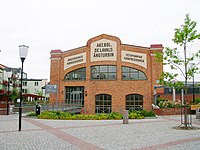Contributions
de Laval nozzle
In 1882 he introduced his concept of an impulse steam turbine and in 1887 built a small steam turbine to demonstrate that such devices could be constructed on that scale. In 1890, Laval developed a nozzle to increase the steam jet to supersonic speed, working from the kinetic energy of the steam, rather than its pressure. The nozzle, now known as a de Laval nozzle, is used in modern rocket engine nozzles. De Laval turbines can run at up to 30,000 rpm. The turbine wheel was mounted on a long flexible shaft, its two bearings spaced far apart on either side. The higher speed of the turbine demanded that he also design new approaches to reduction gearing, which are still in use today. Since the materials available at the time were not strong enough for the immense centrifugal forces, the output from the turbine was limited, and large scale electric steam generators were dominated by designs using the alternative compound steam turbine approach of Charles Parsons.
Using high pressure steam in a turbine that had oil-fed bearings meant that some of the steam contaminated the lube-oil, and as a result, perfecting commercial steam-turbines required that he also develop an effective oil/water separator. After trying several methods, he concluded that a centrifugal separator was the most affordable and effective method. He developed several types, and their success established the centrifugal separator as a useful device in a variety of applications.
De Laval cream separators and Alfa Laval
De Laval also made important contributions to the dairy industry, including the first centrifugal milk-cream separator and early milking machine, the first of which he patented in 1894. It was not until after his death, however, that the company he founded marketed the first commercially practical milking machine, in 1918. Together with Oscar Lamm, de Laval founded the company Alfa Laval in 1883, which was known as AB Separator until 1963 when the present name was introduced.
DeLaval
In 1991, Alfa Laval Agri, a company producing dairy and farming machinery was split from Alfa Laval when it was bought by the Tetra Pak Group. When Alfa Laval was sold, Alfa Laval Agri remained a part of the Tetra Pak group and was renamed DeLaval, after the company's founder.
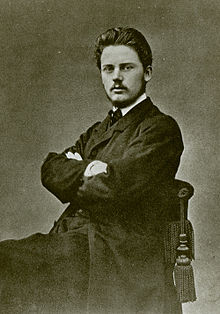
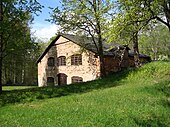
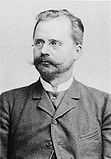
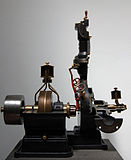
![A unique submarine invented by Gustaf de Laval[6]](uploads/commons/thumb/0/05/de-leval-boat-jpg/200px-de-leval-boat.jpg)
